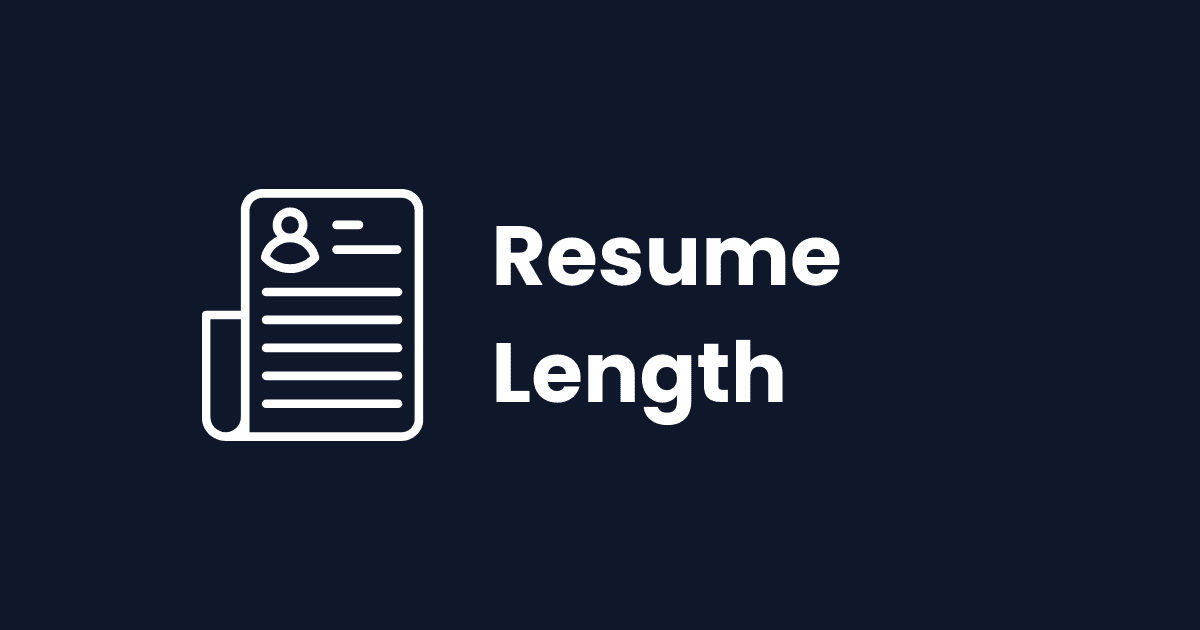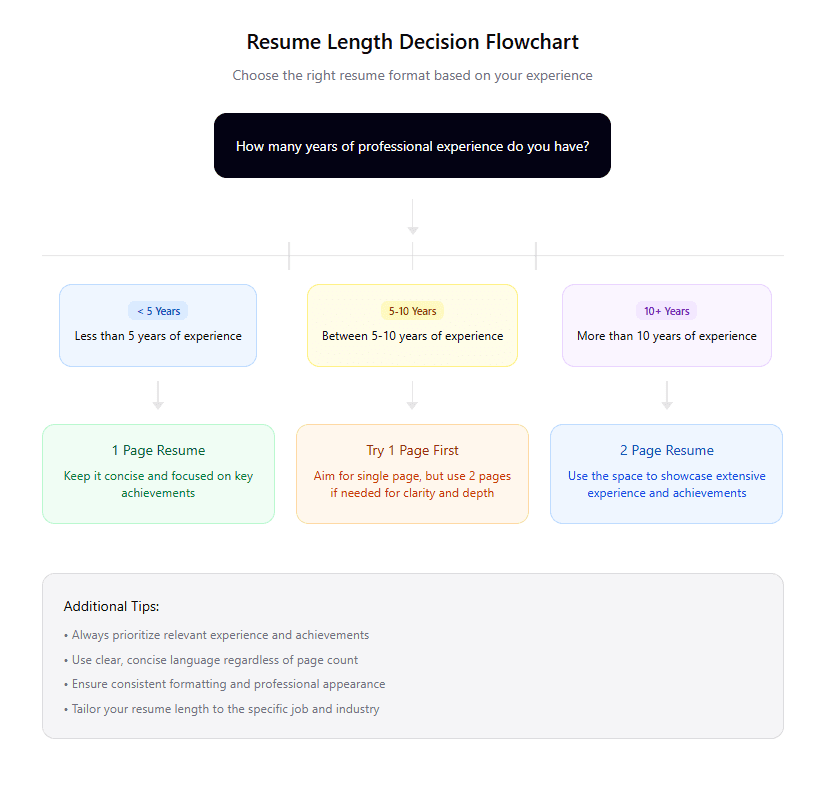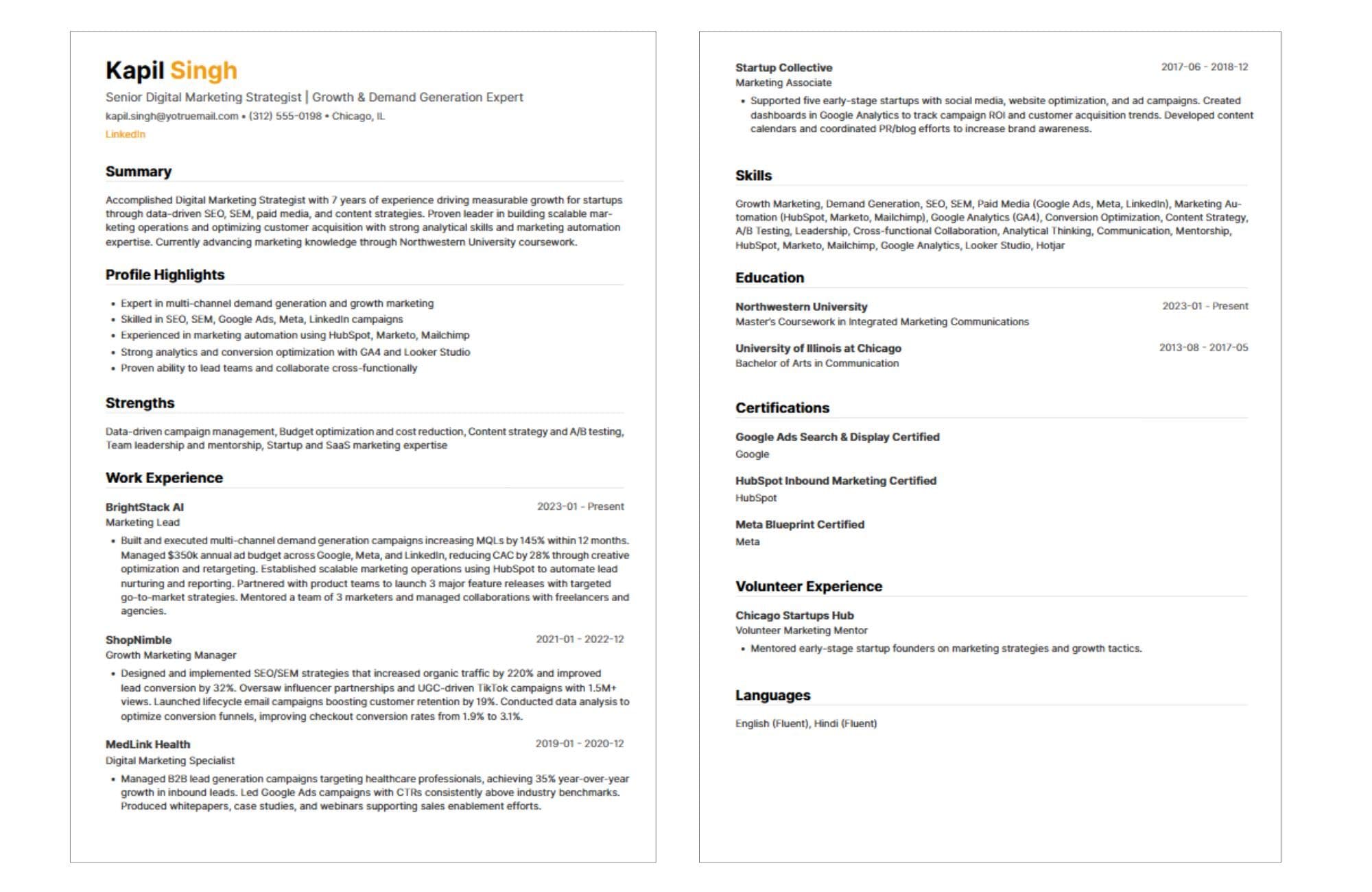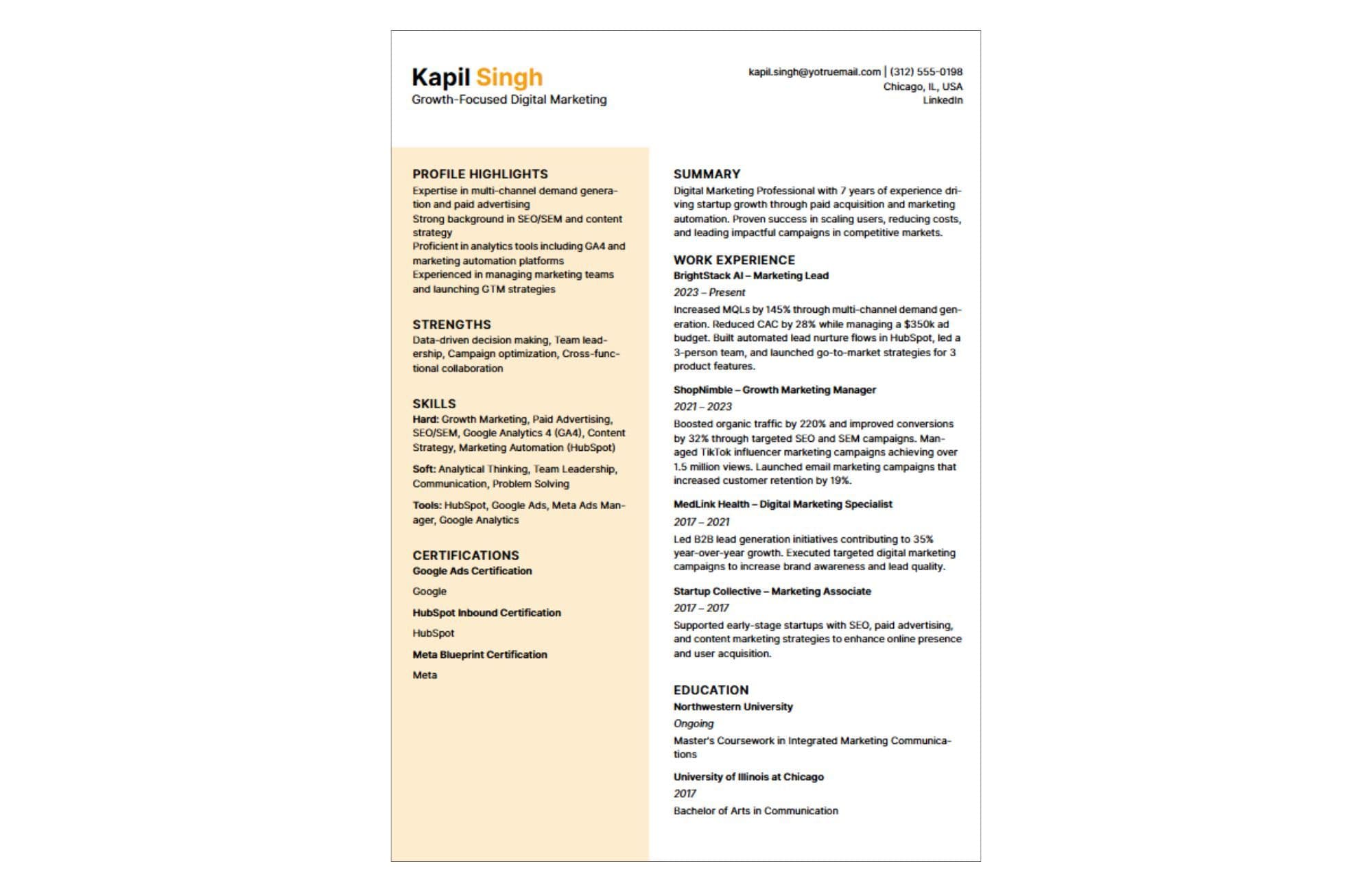
Employability
5 min read
Resume one page or two?
The most common resume questions asked is: resume one page or two page?
The short answer to the one page or two question regarding the length of your resume is:
- One page is best for recent graduates, career changers, and people with less than 5–7 years of relevant experience.
- Two pages works for experienced professionals, technical specialists, and people with over 7–10 years of relevant work history.
The right choice depends on your career stage, your industry, and how much relevant content you have.

When a One-Page Resume Is Best
A one-page resume is ideal when you:
- Have less than 5 years of directly relevant work experience
- Recently graduated from university, college, or a training program
- Are changing careers and focusing on transferable skills
- Work in industries where short resumes are standard, such as marketing, customer service, or retail
Advantages of a one-page resume:
- Easy for recruiters to scan in under 10 seconds
- Forces you to keep only the most relevant content
- Works well for job applications that get hundreds of resumes
Tips to keep it to one page:
- Remove older, unrelated jobs
- Focus on the last 5–7 years of relevant work
- Combine similar roles into one section
- Use bullet points for clarity
A one-page resume is best for recent graduates or professionals with under 7 years of relevant experience. Keep only the most relevant roles, skills, and achievements to fit it onto a single page.
When a Two-Page Resume Makes Sense
A two-page resume works well when you:
- Have over 7–10 years of relevant work experience
- Have held multiple positions that each add value to your application
- Work in a technical field and need space to list skills, tools, or certifications
- Have notable projects, publications, or industry awards to include
Advantages of a two-page resume:
- Allows you to include more detail for senior or technical roles
- Lets you show career progression and achievements across multiple jobs
- Gives space for certifications, professional development, and major projects
Tips for a strong two-page resume:
- Put the most important content on page one
- Avoid repeating the same duties under multiple jobs
- Use the second page for additional achievements, projects, or education
A two-page resume is best for experienced professionals, especially those with 10+ years of relevant work or technical expertise. Keep the first page focused on key achievements and use the second for additional supporting details.

Recruiters take on the resume One page or Two question
Recruiters and hiring managers care more about relevance and clarity than page count. They prefer a short, targeted resume over a long one filled with unrelated details.
If you cut your resume to one page but remove important information, you might hurt your chances. If you stretch your resume to two pages but fill it with generic job descriptions, they may lose interest halfway through.
Recruiters do not mind one or two-page resumes, as long as the content is relevant, easy to scan, and tailored to the job posting.
Resume Length and Applicant Tracking Systems
Many employers use Applicant Tracking Systems to scan resumes. ATS software does not penalize you for resume length, but it does filter out resumes with poor formatting or missing keywords.
To make your resume ATS-friendly:
- Use clear section headings like Education, Skills, and Experience
- Avoid tables, graphics, and complex layouts
- Include keywords from the job posting in your resume naturally
Resume length does not affect ATS filtering, but formatting and keywords do. Use simple headings and match keywords from the job posting to pass ATS scans.
Other Considerations
- Experience matters: One page often works if you are earlier in your career. Two pages can make sense once you have built 7–10+ years of experience.
- Industry norms differ: Academic, technical, or government roles may expect longer resumes. In corporate or startup settings, concise usually works better.
- Know the difference: A CV is not the same as a resume. Always confirm what the employer is asking for.
- Think about the reader’s time: Recruiters often spend less than a minute scanning your resume, so keeping it focused helps them find what matters most.
- Focus on relevance: If you need to condense, highlight the past three years of experience and scale back on anything older than five years.
- Quality over quantity: Two strong pages with clear accomplishments are more effective than three pages of generic job duties.
- Cut the fluff: Older internships, outdated skills, or early jobs can often be summarized in one line or left off entirely.
- Format matters: White space, clear headings, and easy-to-read fonts make a stronger impression than squeezing everything onto a single page.
- Customize as needed: You might keep both a one-page version and a longer version of your resume, depending on the role.
- Be intentional: Every line should add value and show why you are a good fit for the job.
One page or two - Real Life resume example
Kapil Singh is a digital marketing professional with 7 years of experience in startups. With that background, he could go two ways: a longer two-page resume or a condensed one-page version.
When the Double Page Resume makes sense
In his full two-page resume, every role since 2017 was detailed. It covered early startup work, healthcare marketing, and his recent leadership achievements like managing ad budgets and teams. This gave recruiters the complete story.

The Processes of Reduction
To create the one-page version, the focus shifted to his last two years. Big wins like boosting MQLs by 145% and reducing CAC by 28% were front and center. Older jobs were trimmed to one line, duplicate skills were removed, and the layout was tightened. The result was a sharp, modern resume that shows value fast.
When the Single Page Resume packs more punch
A single-page resume often works better in fast-moving industries like digital marketing. Recruiters scan resumes in seconds, so clarity and relevance matter more than listing everything you have done. A focused one-pager also shows that you know how to prioritize and present information.
For professionals like Kapil, having both versions makes sense. The two-page resume works when depth is expected. The one-page resume shines when speed and impact count most.

How Yotru Helps You Get the Length Right
If you are unsure whether your resume should be one page or two, Yotru’s Job Builder can help. It reviews the role you are applying for and suggests what to include so your resume is the right length and content for that job.
With Yotru, you can:
- Create a one-page or two-page ATS-friendly resume in minutes
- Get keyword suggestions based on the job posting
- Save different versions for different employers
- Focus on content that actually gets you interviews
Your resume should be as long as it needs to be to tell your story clearly, without adding extra fluff. For many early-career professionals, that means one page. For experienced candidates, two pages often works best. In both cases, make sure every section is relevant to the role you want.
About the Author

Team Yotru
Employability Systems & Applied Research
Team Yotru
Employability Systems & Applied Research
We build career tools informed by years working in workforce development, employability programs, and education technology. We work with training providers and workforce organizations to create practical tools for employment and retraining programs—combining labor market insights with real-world application to support effective career development. Follow us on LinkedIn.
Questions or Need Support?
If you are working on employability programs, hiring strategy, career education, or workforce outcomes and want practical guidance, you are in the right place.
Yotru supports individuals and organizations navigating real hiring systems. That includes resumes and ATS screening, career readiness, program design, evidence collection, and alignment with employer expectations. We work across education, training, public sector, and industry to turn guidance into outcomes that actually hold up in practice.
Contact Yotru
Continue Reading
More insights from our research team

How to Write Resume Accomplishments That Get You Interviews
Most resumes list duties instead of results. Learn how to write resume accomplishments that show impact, quantify your value, and actually get you callbacks.
6 min read

Professional Networking Strategies: How to Build Connections That Lead to Career Opportunities
Learn proven professional networking strategies that create lasting career opportunities. Practical examples, connection-building techniques, and actionable steps for effective networking in 2026.
18 min read

Can ATS Read Two‑Column Resumes? (2026 Guide)
Yes, two‑column resumes can work in modern ATS when they’re built correctly, but single‑column layouts are still the safest option in 2026.
4 min read

How to Write a Resignation Letter in 2026 (Clear, Professional, and Future-Proof)
For professionals planning a career move. Learn how to write a clear, professional resignation letter in 2026 that protects your reputation and keeps future options open.
3 min read